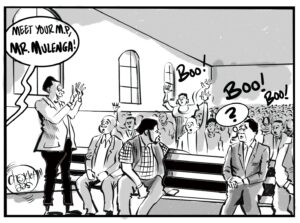THE Institute of Law, Policy, Research and Human Rights Limited has insisted that the Judicial Service Commission (JSC) has failed or neglected to recommend the prescribed number of persons for presidential appointment as judges of the superior courts as prescribed by the Constitution.
This is a matter in which the Institute of Law, Policy, Research and Human Rights Limited has sued the State, seeking an order that the inability, failure or omission by the Judicial Service Commission (JSC) to identify and recommend those who are qualified to be appointed as judges of the superior courts is unconstitutional and therefore, unlawful.
The Institute which has cited the Attorney General as the respondent also wants President Hakainde Hichilema through the Attorney General to fill all vacancies in the superior courts in order to comply with the Constitution of Zambia (Amendment) Act No.2 of 2016 and the superior courts (Number of judges) Acts No.9 of 2016.
The petitioner is further seeking an order of mandamus compelling the JSC to immediately identify and recommend those who are qualified to be appointed as judges of the Supreme Court, Constitutional Court, Court of Appeal, and High Court.
But in an answer filed in the Constitutional Court, February 8, the state argued that the Judicial Service Commission had not neglected its Constitutional duty as the appointment of judges was done subject to the availability of office space and also required funding.
“The appointment of judges is done subject to the availability of office space and also requires funding as judges’ personal emoluments are appropriated from the consolidated fund. Further, it is particularly difficult to have the minimum number of judges at each particular moment in time due to retirements, resignation and deaths, coupled with the length of the procedure of appointment of judges enshrined in the Constitution which involve the President, the JSC and ratification by the National Assembly,” the answer read.
But in its reply to the State’s answer, the institute insisted that the respondent had to date failed or neglected to recommend the prescribed number of persons for presidential appointment as judges of the superior courts as prescribed by the Constitution and therefore had contravened the Constitution.
The institute stated that the arguments before court had shown that the respondent had not denied the failure to comply with constitutional provisions, but had proffered an explanation bordering on costs, inconvenience and expediency.
“It is thus, our fervent submission that the respondent through the said institutions had contravened Articles (124) (127) (130) and (133) of the Constitution as well as sections (2) (3) (4) and (5) of the Superior Courts (Number of Judges) Act. Accordingly, we pray that the reliefs applied for be granted to the petitioner,” read the reply.
























